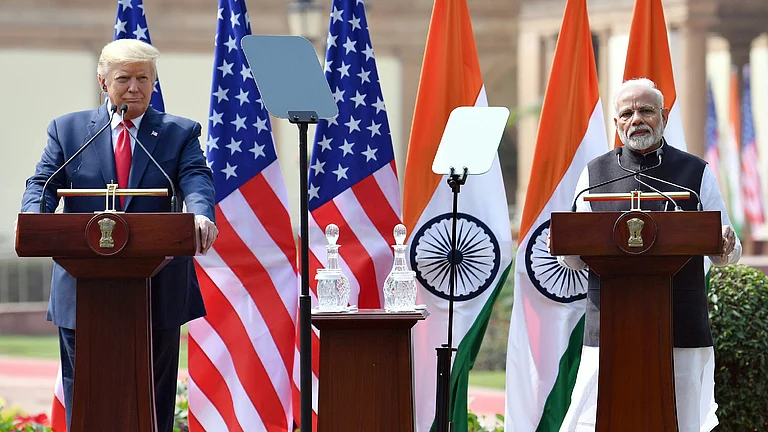With the fear of US reciprocal tariff hovering over several countries, India is likely to enjoy a price competitiveness in the US market over other countries even if reciprocal tariff gets imposed, said official from NITI Aayog, public policy think tank.
“Overall world trade is slowing down because of uncertainty. But India will be doing better in the global market in terms of total trade. India’s price competitiveness won’t be affected much,” said a source from NITI Aayog.
On April 2, US President Donald Trump will be unveiling his administration’s strategy for implementing reciprocal tariffs, aimed at addressing trade imbalances with countries running surpluses against the U.S. Previously, on March 4, 2025, he raised tariffs on all Chinese imports to 20%. He also imposed a 25% tariff on most Canadian and Mexican goods but later exempted all United Mexican States, and Canada (USMCA) compliant goods until April 2.
Indian exporters are also gearing up and taking all possible measures to safeguard themselves if the tariff gets imposed. However, the source from NITI Aayog assured that India needs not to worry as out of top 10 exported items to the USA, India is in much better position for 6 items. While three main other competitors in the US market are - Canada, Mexico and China accounting for 50 per cent of the USA's total imports of $3.1 trillion. These countries are going to face tariffs in the range of 20-25 per cent.
While it is still uncertain whether, Trump administration will impose reciprocal tariff based on products or it will be specific to countries, there are chances that some of the sectors might even be benefitted.
Currently, India-US trade-related interactions are going on at the official level as Assistant U.S. Trade Representative for South and Central Asia Brendan Lynch, along with a team of U.S. government officials, have come to India. Representatives from both the countries are having a three-day long meeting till March 29.
On Wednesday, Trump intensified his trade dispute by imposing a 25% tariff on automobiles and auto parts, set to take effect from April 3. The move casts uncertainty over India’s auto component exports—and raises concerns about the sector’s growth prospects in the USA.
































